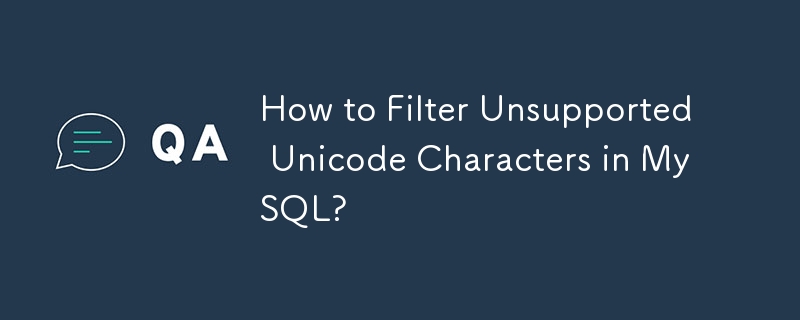Home >Database >Mysql Tutorial >How to Filter Unsupported Unicode Characters in MySQL?
How to Filter Unsupported Unicode Characters in MySQL?
- Susan SarandonOriginal
- 2024-10-30 12:52:031148browse

Unicode Character Filtering in MySQL
MySQL's utf8 implementation has a limitation where it does not support 4-byte characters. To overcome this issue, users may need to filter out such characters before storing data in the database.
One approach to filtering unicode characters that would take more than 3 bytes in UTF-8 is to use regular expressions. The following Python snippet demonstrates this approach:
<code class="python">import re
re_pattern = re.compile(u'[^\u0000-\uD7FF\uE000-\uFFFF]', re.UNICODE)
def filter_using_re(unicode_string):
return re_pattern.sub(u'\uFFFD', unicode_string)
# Example usage:
unicode_string = "Hello, world! This is a unicode string with some 4-byte characters."
filtered_string = filter_using_re(unicode_string)</code>
In the provided code, re_pattern matches Unicode characters that would require more than 3 bytes in UTF-8, and the sub function replaces them with the REPLACEMENT CHARACTER (uFFFD). Users can also substitute it with another desired replacement character such as '?' if preferred.
By utilizing this approach, users can effectively filter out unsupported Unicode characters before they are stored in MySQL, ensuring compatibility with the database's limitations.
The above is the detailed content of How to Filter Unsupported Unicode Characters in MySQL?. For more information, please follow other related articles on the PHP Chinese website!

